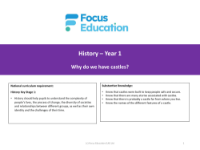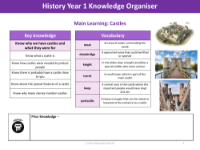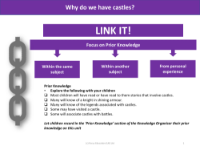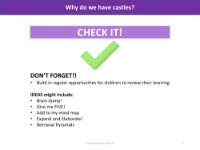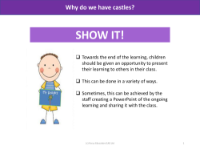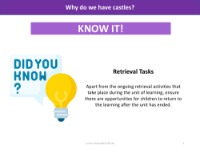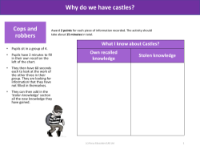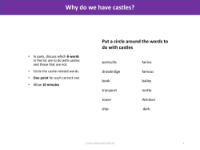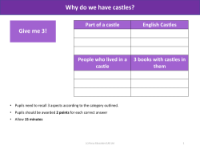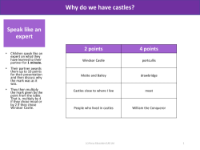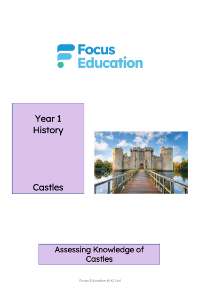Progression pedagogy - Castles - Year 1
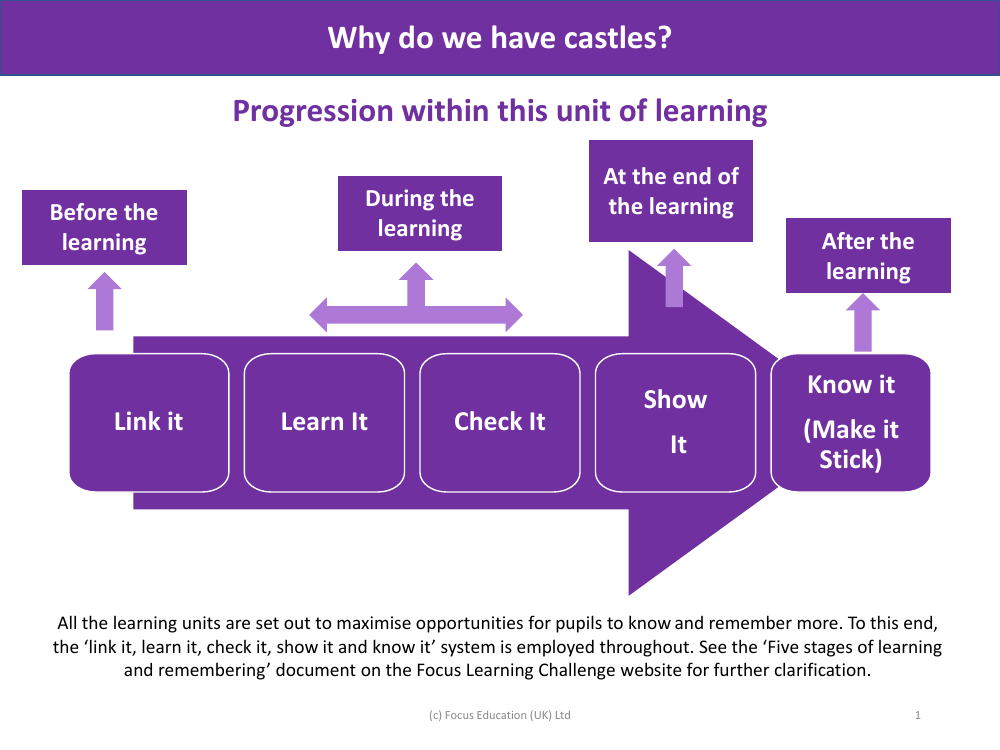
History Resource Description
The 'Castles' unit for Year 1 students is designed to explore the question "Why do we have castles?" and aims to ensure that pupils not only acquire knowledge but also remember it long-term. The teaching strategy employed throughout the unit follows a systematic approach known as 'link it, learn it, check it, show it, and know it'. This pedagogical framework is designed to maximise retention and understanding by connecting new information with prior knowledge and reinforcing learning through various stages of engagement and assessment.
At the beginning of the unit, 'Before the learning', teachers establish connections with pupils' existing knowledge or experiences. 'During the learning', the focus is on the acquisition of new information and concepts related to castles. As the unit progresses, 'At the end of the learning', students are assessed to check their understanding and recall of the key points covered. The 'After the learning' stage is crucial for ensuring that the knowledge sticks, where students are encouraged to demonstrate and apply their learning in different contexts. The 'Five stages of learning and remembering' document, available on the Focus Learning Challenge website, provides further details on this progression pedagogy, guiding educators in implementing this strategy effectively.
